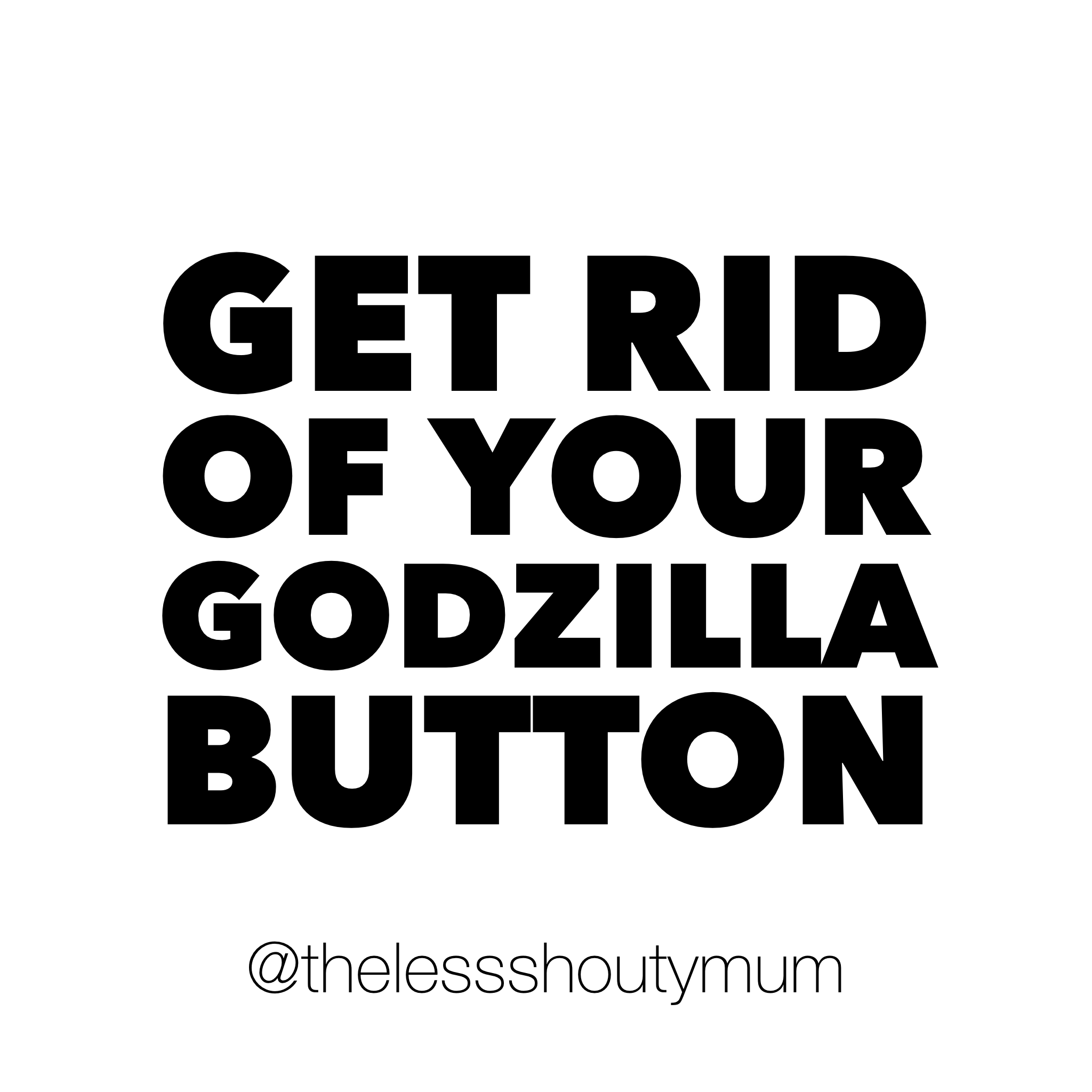
16 Sep How to get rid of your Godzilla Button
Godzilla is the sea monster with the massive, furious roar. You may know him from the latest film, or if (like me) you grew up in the 80s perhaps you remember the cartoon with its stomping theme tune ‘Up from the depths, thirty stories high, breathing fire, his head in the sky, Gozilla! Godzilla!’ ….you get the gist. And of course I’m relating that Godzilla ROAR! to our worst, totally lost-it reaction when our kids push our buttons. Pretty scary. No one wants to be Godzilla, yet here we are.
What was the last thing your child did that triggered your ‘Godzilla button’? Is there a pattern? What else is going on when it happens?
Before I started working on my ‘buttons’, my child’s defiant behaviour could flip me – those ‘you can’t make me’ moments. Feeling powerless and ignored I found it infuriating, I roared at my darling button pusher. Result: both of us feeling crap and potentially damaging to our relationship. No good parenting can be done here.
When we get our buttons pushed our reactions tend to run from the moderate ‘Grrr’ to the top end ‘Roar’ – write down what triggers you and where on the scale it goes. The Psychotherapist Phillipa Perry says a strong emotional reaction to something your child does or says is a warning that you’re getting your buttons pushed.
But what is a button? How does it get pushed? And how can we lessen its power over us so we can parent effectively?
A button is a sore spot. Created in your past, during your formative years with parents, siblings and other people significant in your life. For example you may have had a parent who insisted you ate everything on your plate, reprimanding you if you didn’t, which you reacted to with anger, frustration and feeling rejected ‘They care more about food waste than me!’ might have been your child viewpoint (your parent’s will have been different). Feeling rejected by those who care for us is a threatening place to be as a child and our fight, flight or freeze instincts may kick in.
Your own child might ping those uncomfortable feelings with their behaviour and instead of reacting in the present, you react from the past. You feel uncomfortable, threatened. You shout to protect your button (‘Don’t push my button’!), maybe uttering words you swore you’d never say to your child. All of this tends to happen in a flash, outside of our awareness.
What you can do
We’re going to keep getting our buttons pushed if we don’t raise our consciousness of them. The next time you feel strong, difficult emotions in relation to the actions or words of your child, take some time to assess what’s really going on for you.
Ask yourself questions:
Does this feeling wholly belong to this situation and my child in the present?
How am I stopping myself seeing the situation from their standpoint (What was I thinking)?
Your reactions may have become habitual and not at all useful in relation to your child. By getting curious and raising our parenting consciousness, we make space to build better relationships with our children. Our ‘Buttons’ have less of a hold over us the more we expose them and choose to act in a different way.
Of course, changing our behaviour is easier said than done. Our brains don’t like change and they’ll go for the familiar over the new, even if the new is a provably better option. So it takes some time and practice. You can certainly work on this by yourself, though often it’s useful to have a guide and a space where you can be supported – this is what I offer on the ‘When your kids push your Buttons’ online course. It comprises of short videos taking you through the fundamentals, a workbook so you can work on your real-life situations and a facebook group where you can chat to others and gain support from me.
If you’ve had enough of being triggered by your child’s behaviour and know that you’d like to improve life at home sign up to the ‘When your kids push your buttons’ course now. Don’t keep putting it off, this can make a real difference.
Access the course now Online Course

Sorry, the comment form is closed at this time.